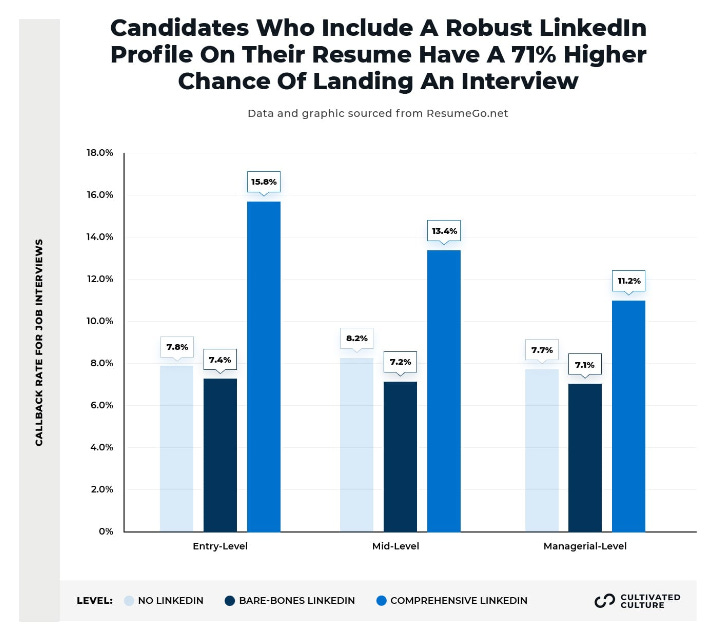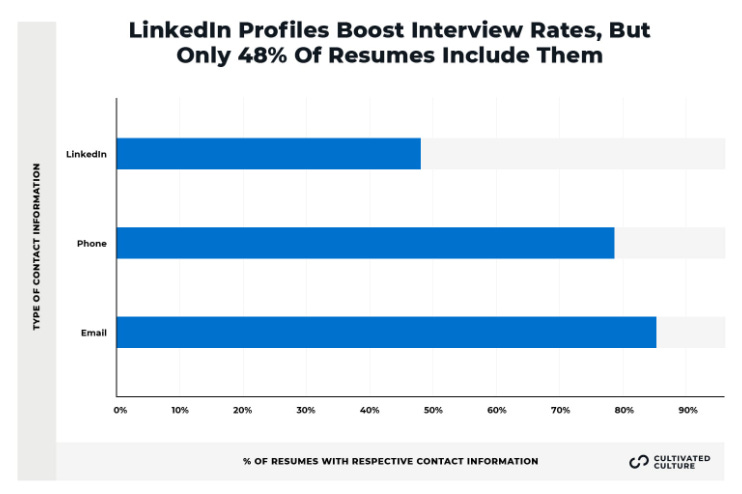Unveiling the Secrets of an Effective Resume
A Review of Austin Belcak's Findings on 125,484 Resumes
A perennial challenge that job seekers face is navigating through the conflicting resume advice that floods the internet. The advice you stumble upon might work wonders for some but may fail others miserably. The subjective nature of this advice has always been a concern until Austin Belcak decided to eradicate the ambiguity by analyzing a whopping 125,484 resumes.
Belcak's results drew the curtains off certain foundational principles, which proved beneficial for anyone attempting to write an impressive resume, whether they were creating their first resume or refining an already established one. To value your time, we'll present five significant findings upfront and then explore the implications of the study along with actionable resume writing tips.
The 5 Key Insights from Austin's Study
Here are the findings that emerged from Belcak's colossal analysis:
Resumes linked with a LinkedIn profile often see higher interview rates, yet only 48% of resumes include a LinkedIn profile.
Candidates typically include only 51% of important keywords and skills, significantly lacking in soft skills.
Measurable metrics enhance resume outcomes, but only 26% of resumes incorporate five or more metrics.
Research indicates that an optimal resume length lies between 475 to 600 words, but 77% of resumes fall outside of this range.
Fluffy content subtracts from a resume's value, but 51% of resumes contain buzzwords, cliches, or incorrect pronouns.
Let's dive deeper into what these discoveries imply for you.
Implications and Actionable Advice
LinkedIn Profile: An Essential Yet Underused Tool
The first takeaway highlights the importance of a LinkedIn profile. Having a LinkedIn profile linked on your resume substantially increases your chances of landing a job interview. However, including a barebones or basic LinkedIn profile can actually hamper your chances, meaning it’s better to hide your profile if you're not investing effort into it. A good profile should consist of a professional headshot and LinkedIn banner, informative work detail section, and a strong network of meaningful connections.
Interestingly, the study found that having a robust LinkedIn profile is more important for entry-level job seekers compared to their higher-level counterparts.
Keywords: The More, The Better
Secondly, while traditional applications may not be ideal, applicant tracking systems that filter candidates by scanning for certain keywords and experiences are a reality. The study reveals that most candidates include only 51% of the relevant keywords in their resume. To overcome this, consider using free online word cloud tools to identify frequent keywords in job descriptions and include these naturally in your resume.
Quantifiable Results: Your Value Proposition
Thirdly, only a quarter of resumes included five or more instances of measurable metrics. Quantifiable results make your contributions clearer and easier to understand. Using a formula like "Accomplished X as measured by Y, by doing Z" can help you present your achievements effectively.
Resume Length: The Sweet Spot
The study identified that the ideal resume length is between 475 and 600 words. Resumes that stick to this word count range have a significantly higher chance of leading to an interview. Ensure you don't stuff your resume with keywords—it's not the quantity but the relevance that counts.
Clichés and Buzzwords: Avoid Like the Plague
Finally, the bane of all recruiters: buzzwords and cliches. They take away from your message, making your experience sound summarized rather than sold. Google common resume cliches and buzzwords and remove all instances from your resume for an instant upgrade.
Conclusion
While some of these tips might seem basic, the numbers behind Belcak's research strongly affirm their.ai<|im_sep|>Decoding the Success of Your Resume: A Data-Driven Approach
The internet is brimming with advice on resume writing. The challenge is, much of that guidance is subjective and what works for one person might not work for another. However, a recent study by Austin Belcak, which involved analyzing a massive dataset of 125,484 resumes, provides us with objective insights that eliminate much of this guesswork.
Belcak's findings, based on data, are a revelation for anyone attempting to craft an incredible resume. Whether you're a novice entering the job market or a seasoned professional looking to improve an already good resume, these principles should form the foundation of your approach.
Five Key Learnings From Austin's Study
Link Your LinkedIn Profile: Resumes that include a LinkedIn profile have higher interview rates, but surprisingly only 48% of resumes had one.
Inclusion of Important Keywords: Candidates included only 51% of crucial keywords and skills, particularly under-representing soft skills.
Measurable Metrics: Measurable metrics enhance resume outcomes, yet only 26% of resumes included five or more metrics.
Ideal Resume Length: The optimal resume length is between 475 to 600 words. Astonishingly, 77% of resumes fell outside of this range.
Avoid Fluffy Content: Fluffy content detracts from a resume's value. However, 51% of resumes contained buzzwords, cliches, or incorrect pronouns.
What These Learnings Imply
Add a LinkedIn Profile: A mere mention of your LinkedIn profile on your resume isn’t enough; it needs to be well-structured and comprehensive. Bare bones or basic LinkedIn profiles can, in fact, decrease your chances of getting a callback. Essential elements of an effective LinkedIn profile include a professional headshot and banner, a detailed work section, and a network of meaningful connections.
Include the "Right" Keywords: Incorporating the correct keywords and skills in your resume is vital to bypass the applicant tracking systems that filter out what they perceive as low potential candidates. Tools like online word clouds can help identify frequently used keywords in a job description that can then be naturally included in your resume.
Add Measurable Results: Including measurable results in your bullet points significantly improves your resume's effectiveness. By quantifying your accomplishments, you can better communicate your value to potential employers.
Maintain the Right Length: Keeping your resume length between 475 and 600 words significantly increases your chances of getting an interview. Keyword-stuffing is a strict no; instead, focus on including keywords that are relevant to the job.
Avoid Buzzwords and Cliches: Using buzzwords and cliches in your resume is not recommended. They are unnecessary and detract from the key messages you want to convey.
In conclusion, these findings underline the importance of adhering to some basic principles while writing a resume. Although some may seem elementary, like including measurable results and avoiding cliches, they can make a significant difference in the effectiveness of your resume. The data-backed insights provided by Austin's study serve as a practical guide to creating a robust resume that stands out in a competitive job market.



